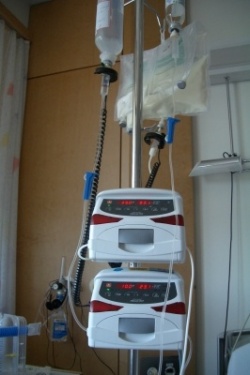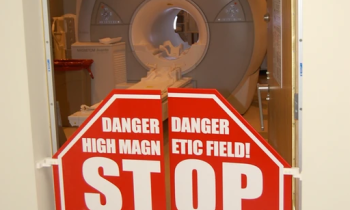NHS needs to invest in increasing specialists´nurses
The Royal College of Nursing (RCN) has joined forces with almost 40 of the UK's leading health organisations to warn that cutting specialist nurse services for people with long term conditions would be a "false economy", as they began a campaign for guaranteed access to specialist nursing care for all patients with long term conditions.

Specialist nurse posts save millions of pounds from health budgets through reduced complications, fewer hospital re-admissions and the expert long term management of conditions. They also provide many patients and families with a lifeline which no other service can offer.
Ahead of the general election, the RCN is calling for every patient with a long term condition to have guaranteed access to specialist nursing care. In Wales, the RCN has campaigned for more specialist nurses as a part of its Get it Right campaign. RCN Wales is asking the Welsh Assembly Government to increase the number of specialist nurses, nurse practitioners and nurse consultants in Wales. The potential for advances and specialists nursing roles should be mainstreamed into consideration during service planning.
Tina Donnelly, Director of the Royal College of Nursing in Wales, said: "When surveyed by the RCN, advanced and specialist nurses were virtually unanimous that their professional judgement is respected by nursing colleagues (94%), and by other health care staff (93%). But although their judgement is respected, their role may not be understood - 23% of those who make referrals, have had them refused because they are a nurse rather than a doctor. Similarly a third (33%) who orders investigations had been refused on the same grounds.
"Advanced and Specialist Nurses make a difference to patients lives and have a beneficial impact on the health service they work in. The roles bring many benefits to patients including continuity of care, access to expertise, improved clinical outcomes, and an excellent relationship between patient and healthcare professional. Another area of benefit is the accessibility and completeness of the services provided. Patients are able to access the services quickly and because nurses have the authority to act, they are often diagnosed and treated more quickly than would other wise have been the case, receiving a 'whole package of care' rather than having to be referred on. Patients thus spend less time on a waiting list and in many cases have longer appointments with a health professional with which they have a relationship of trust."
Dr. Dai Lloyd AM and GP, said: "The RCN in Wales is absolutely correct and I support their efforts to increase the number of specialists'nurses. We need more specialists' nurses in every discipline, including neuromuscular diseases such as multiple sclerosis and Parkinson's disease and rheumatoid arthritis. These nurses offer very specific care that benefits patients and their families and improves the patient's quality of life. If a patient is experiencing a low level low tech problem regarding their chronic disease, the specialist nurse is often the one who can provide a solution because they are aware of the specifics of the disease."
Notes
Organisations who have signed up to the RCN's policy recommendations include the Parkinson's Disease Society, Macmillan Cancer Support, Epilepsy Action, Breakthrough Breast Cancer, Terrence Higgins Trust, MS Society and The Roy Castle Lung Cancer foundation.
Source
Royal College of Nursing
Pic by tokamuwi
08.04.2010









